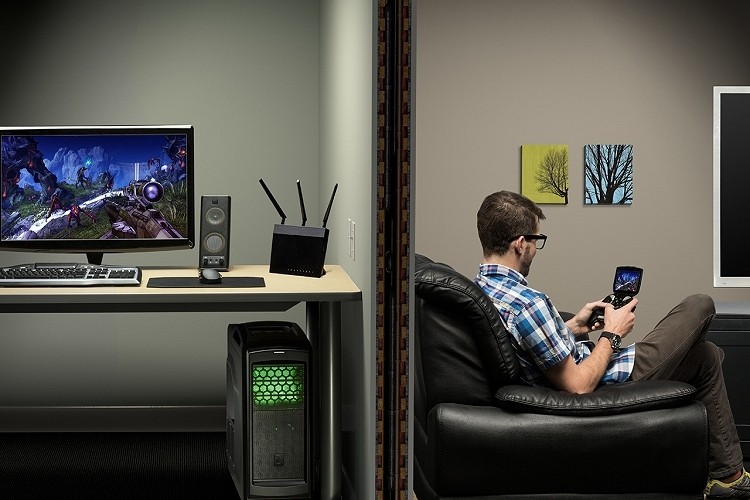
Nvidia has launched a new initiative designed to make PC gaming a living room mainstay. Nvidia GameStream, which builds on the PC streaming abilities of the Shield handheld game console, will work in conjunction with a new feature called Shield Console Mode that could become a serious competitor to the Steam Machines, Xbox Ones and PlayStation 4s of tomorrow.
GameStream – in conjunction with an Nvidia GPU – will be officially launching on October 28 and promises support for more than 50 PC titles including the upcoming sure-to-be hits Batman: Arkham Origins and Assassin’s Creed IV: Black Flag. It’ll initially be available for local PC streaming but in the longer-term, Nvidia plans to expand streaming via their Grid cloud gaming service.
Perhaps more interesting is Shield Console Mode. As the name suggests, this mode effectively transforms a Shield into a full gaming and entertainment console for your television. Simply connect the handheld to your television via HDMI and pair it with a Bluetooth controller then sit back and enjoy PC games on the big screen.
In addition to playing games, Console Mode allows users to surf the web, play Android games and watch movies – all at native 1080p on the big screen. Well, sort of. As we understand it, Console Mode can work either over Gigabit Ethernet or Wi-Fi. If you’re using the former, it’ll be at 1080p but if you are using wireless, gameplay will be limited to 720p.